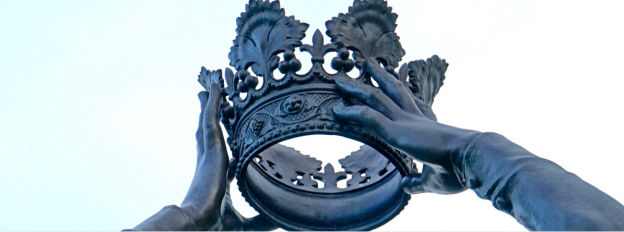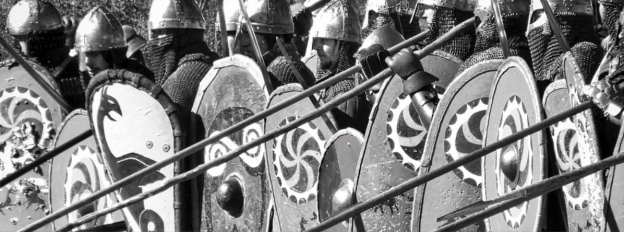Summary
To those who trust in Jesus’ sacrifice on the Cross for the forgiveness of their sins, offering praise to God seems as natural as breathing. Week by week, the Church gathers to worship God, hear from his Word, and be reminded anew of the forgiveness given to us by God’s grace through faith in Jesus Christ. When we do that, we join a great congregation from many times and places, singing praises to God our king.
The first part of Psalm 22 spoke of the suffering which Christ experienced on the Cross for our sins, from his perspective (as expressed by King David one thousand years prior). In the second part of Psalm 22 (verses 22 to 31), all are encouraged to offer praise to God. This praise should be offered by God’s people, those of all nations, and those yet to come.
Our passage explained
v22-26
Firstly, the Psalmist encourages praise by all God’s people. Despite his affliction, he will “tell of [God’s] name to my brothers; in the midst of the congregation I will praise you” (v.22). Further, he encourages all “who fear the LORD” to praise him, all “the offspring of Jacob” to glorify him, and “all you offspring of Israel” to stand in awe of God (v.23).
This praise and encouragement of God’s people to praise is due to God’s help for the afflicted. “For he has not despised or abhorred the affliction of the afflicted, and he has not hidden his face from him, but has heard, when he cried to him” (v.24). While Psalm 22 opens with a cry of abandonment, it is clear that his confidence in God’s presence is rewarded, and that God has not abandoned him, but responded to his cries.
He acknowledges that it is only because of God he can offer praise. He says “from you comes my praise in the great congregation; my vows I will perform before those who fear him” (v.25). God has responded to his cries, so he can offer praise in the whole assembly of God’s people, and bring a thank-offering sacrifice to God. The thank-offering was a meal shared by the offerer’s fellow worshipers, and so “the afflicted shall eat and be satisfied” (v.26). This is followed by the exclamation “those who seek him shall praise the Lord! May your hearts live forever!” (v.26).
v27-29
The praise which should be offered not only by God’s people, but praise by all the earth. Not only will God’s people hear, but “all the ends of the earth shall remember and turn to the LORD, and all the families of the nations shall worship before you” (v.27). The story of God’s rescuing the afflicted will reach the ears of the nations, who will hear and turn away from their idols to worship God, joining those descended physically from Jacob.
Their turning to worship God is because of God’s rulership over the nations. God is not just king over Israel, but over all. “For kingship belongs to the Lord, and he rules over the nations” (v.27). His rule means all will come, whether rich or poor, to worship God, joining in the banquet of praise (v.28).
v30-31
Finally, the praise due to God will extend to praise by those to come. Not only will all the nations praise and worship God, but “posterity shall serve him; it shall be told of the Lord to the coming generation” (v.30). All future generations will turn to God to praise and worship because of his help for the afflicted spoken of in the first half of Psalm 22.
Even those not yet born shall hear of God’s wonder. “They shall come and proclaim his righteousness to a people yet unborn, that he has done it” (v.31). The praise of God will extend not just from the afflicted one saved by God, but to all the nations, and to all ages.
Our passage applied
In this second half of Psalm 22 we have a further picture of Christ’s victory over sin and his redemption of the nations. Perhaps echoing the final words of verse 31 (“he has done it”), Christ proclaimed on the Cross “It is finished!” (John 19:30). No longer are we afflicted by the penalty for our sins, because Jesus identified with us in our weakness and bore the punishment himself.
Having been raised from the dead, Jesus is our Great High Priest who has interceded for us and now sits at God’s right hand. As our High Priest, he leads the praise of the great congregation in worshiping God. As our risen Saviour, God, and King, he receives our praise.
But that praise is not just from us but from all over. People from all nations will come to worship God for what he has done for us through Jesus, and the promise is for our children too. How amazing is it that God promises we all, from many backgrounds, will share in the joy of God’s redemptive work. This promise made here is fulfilled in the Church.
My favourite musical setting of some of this week’s psalm is “All Earth to Him” (Ps. 22:27-31). For a song inspired by Psalm 22 fulfilled in Christ, Andrew Peterson’s “Well Done Good and Faithful” is worth a listen.
Resources
Questions? Please contact us. Inspired? Come and worship with us on Sundays.










